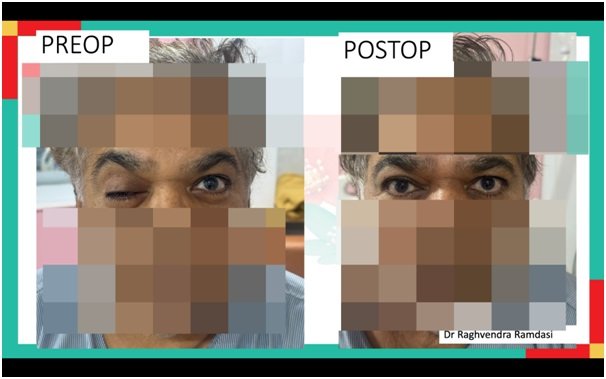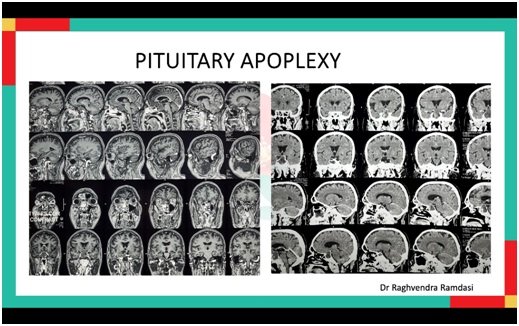Neurological cases are so complex, that a simple case of headache can reveal an underlying brain emergency.
When 55-year-old Suresh was referred to Dr. Raghvendra Ramdasi, one of the best neurosurgeons for pituitary tumor in Mumbai, he arrived with complaints of sudden, severe headaches and drooping of his right eyelid. Initially, Dr. Ramdasi believed it to be case of head trauma, but the reports indicated something entirely different.
Understanding The Symptoms with Tests
Suresh was suffering from a number of problems. Not only did he have severe headaches and droopy eyelids, he also was left with extremely blurry vision that lasted approximately for 3 days. Soon after, he became increasingly drowsy, a sign that denotes raising alarm for a neurological emergency.
An MRI of the brain revealed pituitary apoplexy, a condition where a pituitary tumor bleeds or infarcts suddenly. This condition creates pressure not just on the optic nerve, but also on nearby cranial nerves responsible for eye movements. To simplify this, think of the pituitary gland as a tiny control room located at the base of the brain. When it suddenly bleeds, it’s akin to a balloon bursting in a packed space, compressing the “wires” (nerves) that move the eyes. If these wires are freed quickly, they often work again. If not, the damage can be irreversible.
From the MRI results above, it was clear that the best way to treat this condition would be through an emergency endoscopic trans nasal surgery. Often considered for emergency neurosurgery for pituitary apoplexy, this surgery involves inserting surgical tools through the nose and fixing the afflicted organ without disrupting or damaging the other ones. With the help of this technique, the tumor necrosis and haemorrhage were removed safely. Naturally, as the pressure was relieved, his drooping eyelid opened again, indicating a successful reversal of third nerve palsy that had threatened to remain permanent.

The difference can be seen clearly in the above picture.
Why This Case Matters
Most patients with pituitary apoplexy come with sudden headaches, nausea and vision loss, these are the typical signs. But in rare cases the first or dominant symptom is a drooping eyelid caused by third nerve (oculomotor) palsy, indicating an emergency. This case highlights the close anatomical relationship between the cavernous sinus nerves and an expanding pituitary tumor.
Managing pituitary apoplexy is a race against time. The longer the cranial nerves remain compressed, the higher the chance of lasting damage. Therefore, when decompression is performed by experts on-time, then patients often recover the full nerve function. Dr. Ramdasi understood the implications of this case and played a key role in saving Suresh’s life.
This case suggests that a patient may not just be suffering from a single condition, hence deep analysis can help neurosurgeons go to the dept of the issue and identify the full problem and save the person on time. In many patients, especially middle aged and elderly, the symptoms can be far worse than they seem.
Always Consult the Best Neurosurgeon for Pituitary Tumor in Mumbai
Pituitary apoplexy surgery outcomes heavily depend on the expertise and proficiency of the neurosurgeon along with timely care. If you or your loved ones are looking for experienced pituitary neurosurgeons in India, then you can get in touch with Dr. Raghvendra Ramdasi.
With over 20+ years of experience in the medical field, he has successfully treated 1000+ cases, most of which considered to be rare neurological conditions. Get an early diagnosis and protect your quality of life.




















